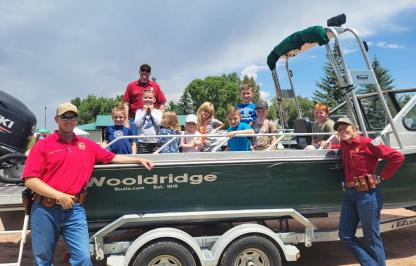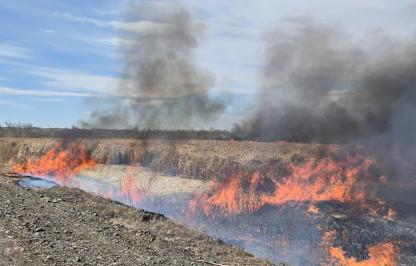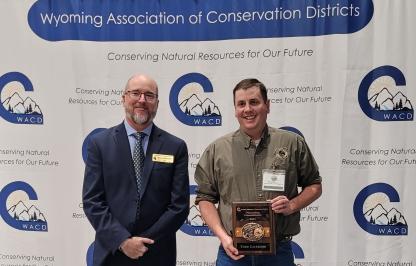Some people believe that when they don’t want their pets any longer it is okay to release them into the wild. However, this is cruel to pets, dangerous to the ecosystem and illegal. The Wyoming Game and Fish Department reminds all pet owners to never release a pet into any of Wyoming’s ponds, rivers or natural places.
“Pets can become an invasive species problem when owners let them loose,” said Josh Leonard, Game and Fish aquatic invasive species coordinator. “From tropical fish to snakes to turtles — do not release your pets.”
When pets get too large or difficult to keep, some people think letting them loose is the kind thing to do. That's not the case. Most pets will starve or freeze to death, and those that survive can cause significant impacts. Because an illegal introduction can have disastrous impacts to a
fishery or even an entire ecosystem, the crime carries some of the highest penalties that exist for wildlife violations.
“Releasing a pet as small as a goldfish can have devastating effects on native wildlife. They can reproduce quickly, disrupting the ecosystem. They may compete with native fish for habitat and spread diseases,” Leonard said.
If you can no longer take care of your pet or no longer want it, Game and Fish recommends following the CARE system:
Contact the place where you purchased the pet to see if they will take it back.
Act Responsibly by never letting animals or plants loose into the wild.
Research other places that may be able to provide a new home for your pet. Pet stores, zoos, aquariums, science centers, animal shelters, and humane societies may be able to help.
Euthanize the animal in a humane way. It may be hard to consider, but this option is far kinder than letting it starve to death in the wild or destroy the homes of native animals. Always freeze unwanted plants and throw them out in the trash.
Game and Fish has a program called Don’t Let It Loose that helps protect native species in Wyoming. To learn more about the program and what you can do with a pet that is no longer wanted, visit the website download our brochure.
---
Photo: Goldfish that were netted out of a Wyoming fishery due to illegal pet dumping.
Unwanted pet? Don’t let it loose in Wyoming’s outdoors
Sara DiRienzo, Public Information Officer - (sara.dirienzo@wyo.gov)



